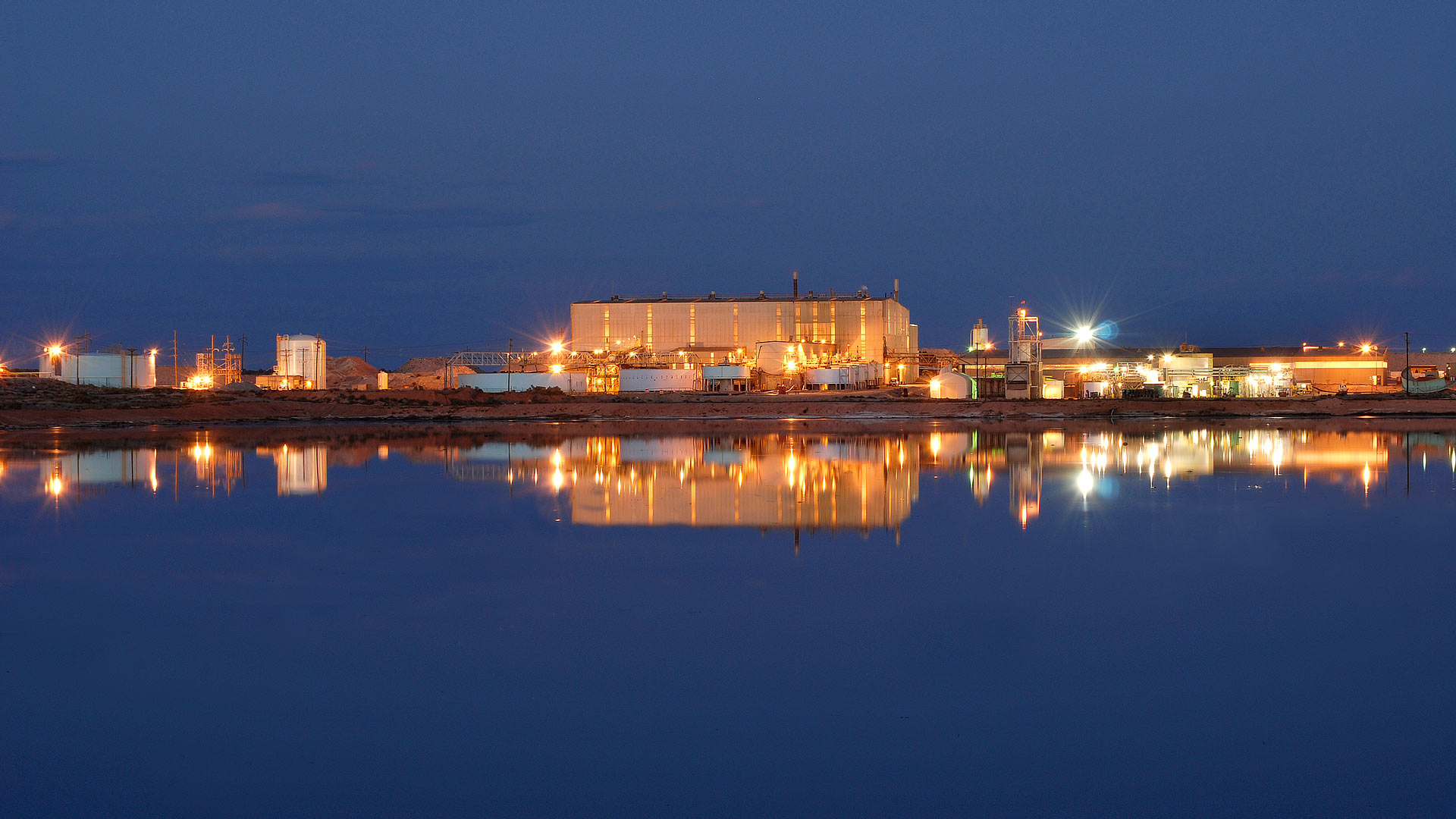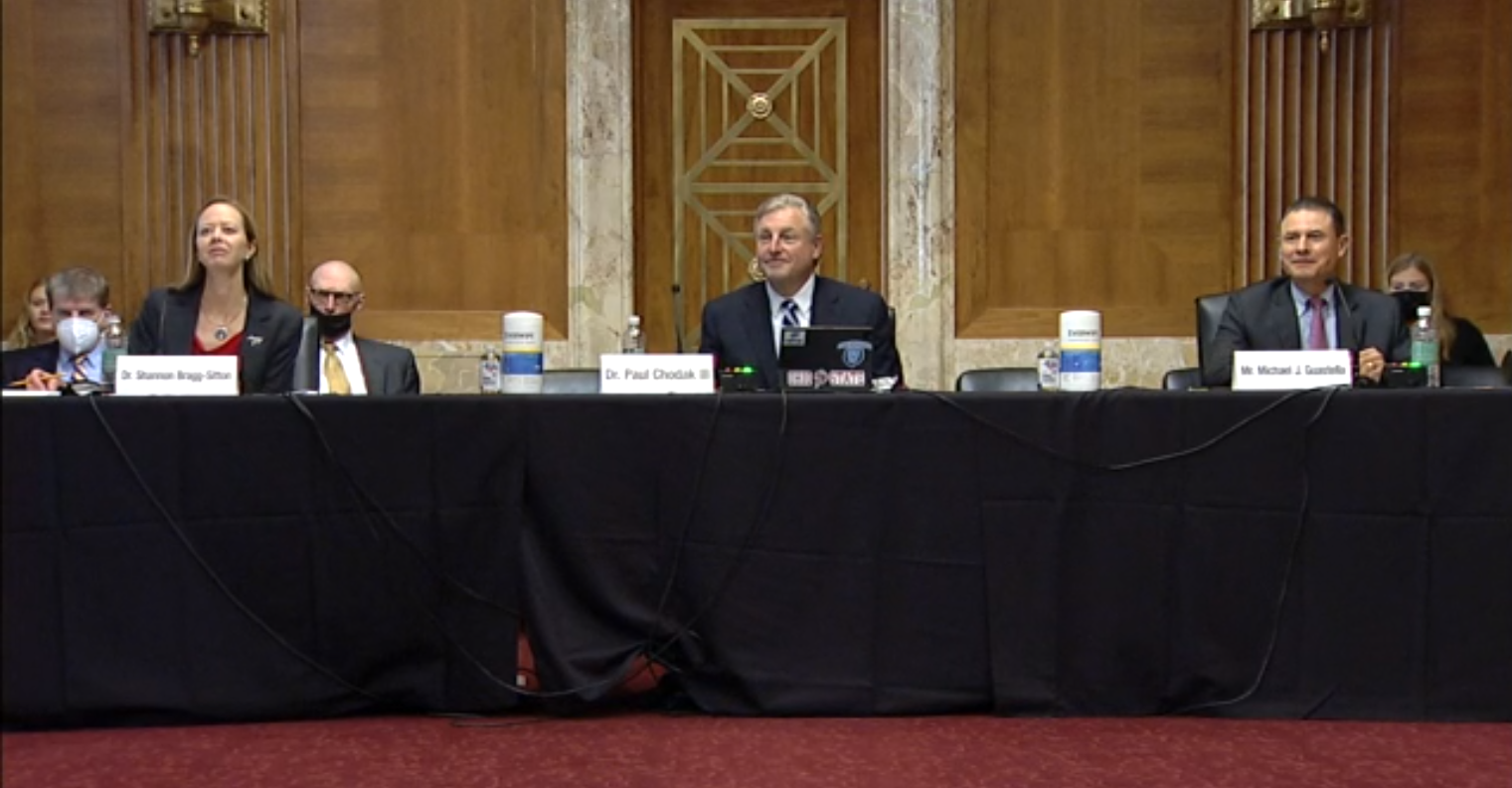A still shot from the Senate ENR Hearing to Examine Fusion Energy Technology Development.
Hours before the Senate Committee on Environment and Natural Resources (ENR) opened a scheduled September 19 hearing on fusion energy technology development, CNN published an article titled “The US led on nuclear fusion for decades. Now China is in a position to win the race.” The article was entered into the hearing record, but senators had already gotten the message.
Energy Fuels’ White Mesa Mill in southeastern Utah is the only operating conventional uranium mill in the United States. (Photo: Energy Fuels)
The bipartisan Nuclear Fuel Security Act (NFSA), introduced in the Senate last week, would authorize the Department of Energy to establish a Nuclear Fuel Security Program to “ensure a disruption in Russian uranium supply would not impact the development of advanced reactors or the operation of the United States’ light water reactor fleet.” The bill was introduced by Sen. Joe Manchin (D., W.V.), chairman of the Senate Energy and Natural Resources (ENR) Committee; Sen. John Barrasso (R., Wyo.), ranking member of the Senate ENR committee; and Sen. Jim Risch (R., Idaho).
Ingots of HALEU derived from pyroprocessing of EBR-II driver fuel at Idaho National Laboratory. (Photo: INL)
On April 7, U.S. Sen. John Barrasso (R., Wyo.), ranking member of the Senate Committee on Energy and Natural Resources, introduced the Fueling Our Nuclear Future Act of 2022. The bill would ensure a domestic supply of high-assay low-enriched uranium (HALEU) for advanced nuclear reactors by directing the Department of Energy to prioritize establishing a domestic HALEU enrichment capability and to use enriched uranium held by the DOE and the National Nuclear Security Administration to fuel advanced reactor demonstrations until U.S. commercial enrichment is available. The bill explicitly excludes uranium sourced or processed by any entity owned or controlled by the governments of Russia and China.
From left, Shannon Bragg-Sitton, Paul Chodak, and Michael J. Guastella appear before the Senate Committee on Energy and Natural Resources on November 4.
As Congress awaited key votes yesterday on spending bills that include production tax credits for at-risk plants and a new amendment adding $500 million in supplemental funding over five years to increase the availability of high-assay low-enriched uranium (HALEU), the U.S. Senate Energy and Natural Resources Committee held a Full Committee Hearing On Potential Non-Electric Applications Of Civilian Nuclear Energy. Sen. Joe Manchin (D., W.V.), chairman of the committee, emphasized that “advanced nuclear reactors hold enormous potential to provide opportunity to communities across the country with zero-emission baseload power” and made it clear he expects new reactors to replace retiring coal plants in his home state of West Virginia.
Speaking before the committee were Shannon Bragg-Sitton of Idaho National Laboratory, Paul Chodak III of American Electric Power, and Michael J. Guastella of the Council of Radionuclides and Radiopharmaceuticals.




